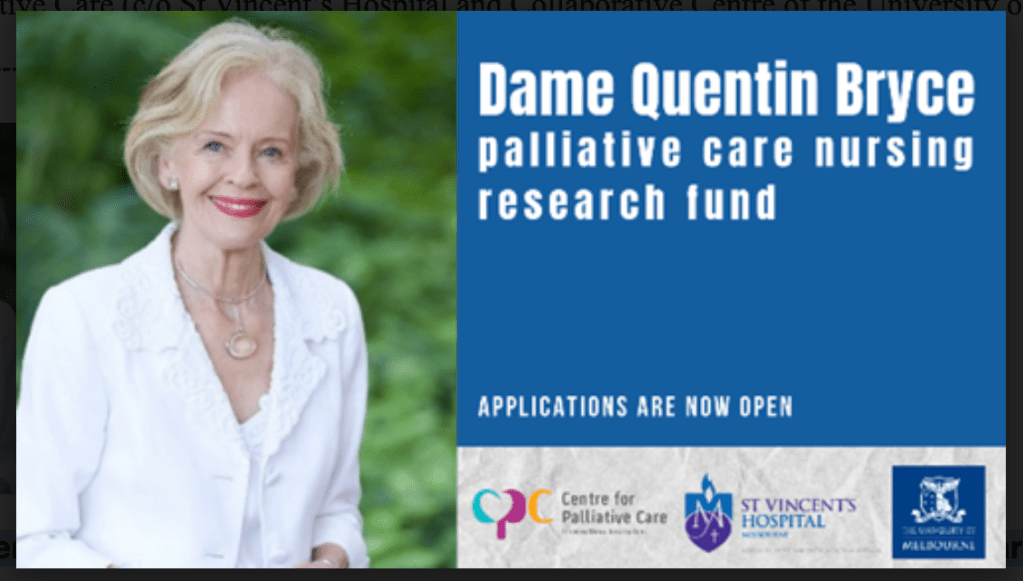I often work in a palliative consultation service, and we are seeing more patients with chronic neurological conditions like Parkinson’s Disease. Parkinson’s disease is a progressive neurological disease that causes tremors (shaking), slowness of movement and stiffness. It can cause changes in facial expression so that people look expressionless. and changes in handwriting and speech too. We have to be careful not to prescribe medications that can make things worse, like for example, we currently give Metoclopramide (maxolon or pramin) for nausea but we need to avoid this medication in a person with Parkinson’s Disease.
Tanja Bahro and the team from the Southern Metropolitan Palliative Care Consortium in Melbourne Australia conducted a survey and found that palliative care clinicians wanted to know more about caring for patients with PD. Not being able to find a guide, they wrote their own! Please email Tanja for a copy tanja.bahro@smrpcc.org.au. They’ve had great feedback from users.
Tanja, tell us about your resource:
“Parkinson’s Disease – Issues for the Palliative Care Team” is a practical resource for people working in specialist palliative care, who are caring for people who are dying both with and from Parkinson’s Disease (PD). It was developed by our project officer Lee-Anne Henley with the great help of Dr Jim Howe, a very experienced neurologist in the area of progressive neurological conditions and palliative care, as well as Robert Wojnar, a pharmacist at Cabrini with a special interest in PD. The resource explains the main issues for people with PD at end-of-life and describes considerations and solutions. It also includes a practical care plan on which we have received some excellent feedback.
What gap did you see that lead you to develop it?
Because of the long trajectory, it is difficult for a health care team to know when people with PD should be referred to palliative care. A lot of PD patients also enter a nursing home and then at times lose contact with their neurologist. This can result in people not being referred to palliative care when appropriate and missing out on a multidisciplinary approach to care when the neurologist is no longer involved. Medication management can be difficult with PD patients, as some medications need to be continued to keep the patient comfortable but might also interact with medications commonly used for palliative care. We undertook a survey of palliative care staff and found that people wanted to know more, so we tried to find clinical guidelines or similar resources. When we couldn’t find anything we thought we’d better develop something ourselves!
How will it help patients and clinicians?
We hope to achieve greater awareness of appropriate referral to palliative care and we’re working on that. With the resource, we anticipate that palliative care clinicians will liaise more with the neurologist— they now have a simple and comprehensive guide to the main issues for people with PD and can therefore act quicker and prevent some of the pitfalls. Our next project is to adapt the resource for the residential aged care sector, but that’s more complex because we must take into account that the clinicians there might not have specialist palliative care knowledge.
How can people get the resource?
We want to make sure that we distribute the resource only to clinicians with experience in palliative care, so we haven’t put it on our website, but pc clinicians can just contact me on tanja.bahro@smrpcc.org.au and I’ll email it to them very quickly.







